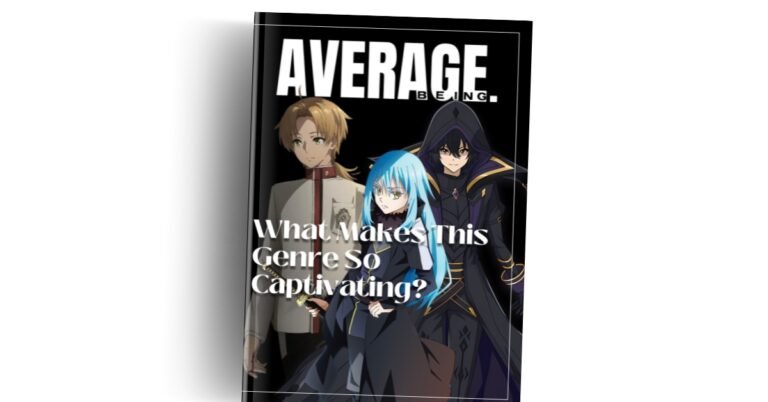Transported to a different world, facing incredible adventures, and often gaining extraordinary powers – this is the core of isekai, a genre that’s taken the anime world by storm.
But what makes it so ubiquitous and beloved?
It’s all about escapism, fresh storytelling possibilities, and a reflection of modern-day discontent.
Isekai is everywhere these days, from popular anime series to light novels and manga, captivating audiences with its thrilling premise. At its heart, isekai offers an escape from the mundane realities of everyday life. In a world where late-stage capitalism often leaves people feeling exploited and powerless, the fantasy of starting anew in an entirely different universe is incredibly appealing. These stories allow viewers to leave behind the stresses of modern life and imagine themselves as powerful, capable heroes in fantastical realms.
Unlike traditional escapist fantasies, isekai typically avoids themes of spirituality or tradition. Instead, it often features protagonists who are irreverent and rewarded for their audacity.
This reflects a broader sense of disappointment with the current world, presenting a fantasy where the protagonist can thrive in ways they never could in reality.
The idea of being transported to a medieval-like setting with the knowledge of the present world is a particularly enticing power fantasy, akin to the appeal of superhero stories in the West.
In fact, the rise of isekai can be compared to the boom of superhero movies in Hollywood. Both genres provide a sense of wish fulfillment, allowing audiences to project themselves onto characters who possess extraordinary abilities and face epic challenges.
Regardless, while superhero movies tend to revolve around saving the world, isekai often focuses on the protagonist’s journey to self-discovery and mastery within their new environment.
This genre also offers endless creative possibilities. The protagonist’s lack of knowledge about the new world mirrors the audience’s perspective, enabling organic world-building and character development.
Yet, it’s worth noting that many modern isekai stories fall into repetitive patterns, heavily influenced by video game mechanics. This has led to a certain level of staleness within the genre, despite its popularity.
On the flip side, isekai’s popularity has given rise to some truly unique and innovative storytelling. “Now and Then, Here and There” is a prime example, using the protagonist’s new surroundings to build a rich and immersive world, “Mushoku Tensei Jobless Reincarnation” where a 34-year-old underachiever gets run over by a bus and gets to an adventure far beyond any of our imaginations, or story of “That Time I Got Reincarnated as a Slime” which follows Satoru Mikami, a salaryman who is murdered and then reincarnated in a sword and sorcery world as a titular slime, who goes on to gather allies and build an entire nation.
This ability to blend the unfamiliar with the familiar is a key strength of isekai, making it a versatile and engaging genre.
Isekai’s omnipresence is proof of its immense popularity, driven by the fact that so many people enjoy it.
Why do they enjoy it?
It’s hard to pinpoint exactly, but for many, the appeal lies in nostalgia. Growing up with fantasy RPGs like “Elder Scrolls,” “Final Fantasy,” and “Dragon Quest,” people often imagined being part of those worlds.
One theory behind the genre’s rise is rooted in those classic games. Children of the ’80s and ’90s who played these games are now adults. Their love for those fantasy RPGs has evolved into creating and consuming stories where protagonists are whisked away to RPG-like universes.
While mecha anime hasn’t vanished—shows like “Darling in the FranXX” and “SSSS.Gridman” are recent examples—its viewership is dwarfed by the massive audience drawn to shonen and isekai genres today.
So, why is isekai so popular?
It’s all about the allure of escapism and empowerment, combined with the thrill of exploring unknown worlds.
Whether you’re a fan of fantasy RPGs or just looking for a break from reality, isekai offers a tantalizing blend of adventure, discovery, and wish fulfillment. But what do you think?
Does Isekai’s appeal lie in its power fantasies or its imaginative worlds?


Recent Comments